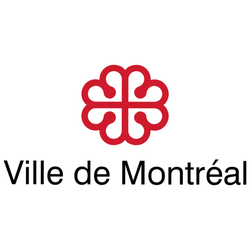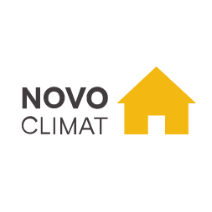
Open
Sherbrooke — Local investment and solidarity funds (FLI and FLS)
Last Update: October 27, 2025
Sherbrooke, QC
Financial aid for Sherbrooke business development and job creation
Loans and Capital investments
At a glance
Funding available
Financing goals
Integrate new technologies
Eligible Funding
- Maximum amount : 100,000 $
- Up to 50% of project cost
Timeline
- Unspecified
Eligible candidates
Eligible Industries
- All industries
Location
- Sherbrooke
Legal structures
- Non-profit
- Public or Parapublic institution
- For-profit business
- Social economy enterprise
- Non-financial cooperative
Annual revenue
- All revenue ranges
Organisation size
- All organization sizes
Audience
- Startups
Non-profit candidates
Sector of operation
- Economic, Social and Community Development
- Employment and Training
- Business Associations
Target groups
- Business owners / entrepreneurs
Revenue structures
- Mixed revenue (50%+ earned)
Scope
- Local
- Municipal
Overview
The Sherbrooke - Fonds local d'investissement (FLI) and Fonds local de solidarité (FLS) program provides financial assistance in the form of loans of up to $300,000 to support the start-up, expansion, succession and improvement of businesses in Sherbrooke. It targets several economic sectors, including primary, manufacturing, tertiary, traditional and tourism, to encourage local economic development.
Activities funded
- Entrepreneurial succession planning involving a significant ownership transfer.
- Acquisition of existing businesses or assets.
- Business development initiatives focusing on productivity improvement.
- Digital transformation projects within companies.
- Expansion of business operations and market reach.
- Short-term bridge financing waiting for confirmed sources of income.
- Restructuring initiatives for businesses facing temporary challenges.
Examples of admissible projects:
$ 60,000
Launching an environmental education program for schools
Eligibility
- The applicant must be a for-profit business legally constituted under the laws of Quebec or Canada, or a collective business (cooperatives and non-profit organizations) with commercial activities as per the Social Economy Act.
- The business must operate within the territory of the City of Sherbrooke and have its headquarters in Quebec.
- The business must be registered with the Quebec Enterprise Register (REQ).
- The business must align with one of the eligible economic sectors: Primary, Manufacturing, Key Tertiary and Technological, Traditional Tertiary, or Tourism.
- The business cannot be registered in the Register of companies ineligible for public contracts (RENA) or be a state-controlled company.
- The business must not be under the protection of the Companies’ Creditors Arrangement Act or the Bankruptcy and Insolvency Act.
- The business must show an ethical conduct that upholds the integrity of the government or municipality and must not have a history of non-compliance with labour standards or human rights legislation.
- The business should not be involved in specific sectors including armament production, fossil fuel extraction, gambling, violent games, sexual exploitation, real estate management and development, or certain prohibited activities related to cannabis.
- Financial aid should not be used to make payments to entities in any of the aforementioned excluded situations.
- The business or project should aim for a significant contribution to socio-economic and environmental improvements in the territory.
Who is eligible?
- Primary sector companies in agriculture, fishing, forestry, and mining.
- Manufacturing and wholesale trade sectors.
- "Engine" and technological tertiary sector companies using innovative technologies.
- Traditional tertiary sector businesses, particularly those in revitalization areas or providing unique community services.
- Tourism-related companies offering leisure or business tourism activities, such as agrotourism and cultural tourism.
Who is not eligible
- Companies registered on the Register of enterprises ineligible for public contracts (RENA), including their subcontractors.
- Entities that have failed to meet obligations from previous financial aid within the last two years and have been formally notified.
- State-owned companies or enterprises controlled directly or indirectly by any level of government.
- Companies under the protection of the Companies' Creditors Arrangement Act or the Bankruptcy and Insolvency Act.
- Enterprises with ethical conduct concerns damaging to the image of government or regional county municipality.
- Businesses with poor environmental responsibility histories.
- Companies with a record of not complying with labor standards or human rights legislation.
- Organizations involved in the production or distribution of weaponry.
- Companies engaged in fossil fuel exploration, extraction, or refining, except those transitioning to a low-carbon economy.
- Establishments operating games of chance, such as casinos or bingo halls.
- Businesses involved in violent games, combat sports, racing, or similar activities.
- Enterprises linked with sexual exploitation like erotic bars or the production of pornographic material.
- Real estate management and development companies.
- Companies related to tobacco or drug consumption services.
- Businesses producing recreational cannabis products or certain cannabis-related goods.
- Professional service providers such as legal services, accounting, and consulting, listed in Annex C.
Eligible expenses
- Additional working capital needed for the project of the company, compared to existing operating expenses, for a maximum period of two years, which corresponds to the year of project completion and the following year, determined on the basis of justified and reasonable expenses.
- Capital expenses strictly and directly related to the realization of the company's project, such as the acquisition of technology, land, buildings, equipment, machinery, and rolling stock, as well as construction, expansion, renovation, and development of land and premises.
- Professional fees incurred prior to the company's project realization, such as feasibility analysis, external audit, or impact study.
- Professional fees strictly and directly related to the realization of the company's project, such as the implementation of technology, equipment, and machinery, as well as the acquisition, construction, renovation, and development of land and premises.
- For entrepreneurial succession projects, expenses related to the acquisition of property titles of the targeted company (voting shares or units) and the company's assets.
- Professional fees strictly and directly related to the transaction and acquisition of the business as well as the transfer of the company's management.
Eligible geographic areas
- Territory of the City of Sherbrooke
Selection criteria
- Economic viability of the funded company, including profitability, repayment capability, and positive outlook.
- Knowledge and experience of the promoters, demonstrating relevant industry expertise and management skills.
- Environmental and societal impacts, with an emphasis on sustainable business practices.
- Openness towards employees, considering their approach to workplace relations.
- Participation of other financial partners, including minimum involvement from financial institutions and promoters' own capital contributions.
- Self-financing capability guiding the selection of enterprises to sustain fund continuity.
How to apply
1
Preparation of the request
- Fill out the completed, dated, and signed financial assistance application form.
- Prepare the business plan and/or detailed project description as required.
- Develop a detailed breakdown of project-related expenses.
- Compose the financial structure of the project including the confirmation of any other financial assistance or funding related to the project.
- Attach the financial statements for the last three years.
- Include interim financial statements if the financial statements are more than six months old or if the business has been in existence for less than a year.
- Prepare the projected financial statements.
- Include a declaration of compliance concerning francization requirements or a copy of the francization certificate (if applicable).
- Include a declaration of compliance regarding employment equity or a copy of the Employment Equity Access Program (if applicable).
- Gather any other documents required by the City of Sherbrooke.
2
Submission of the request
Send all required documents to the City of Sherbrooke while adhering to the management terms presented by the organization.
Additional information
- The investment policy respects a partnership convention with Fonds locaux de solidarité FTQ, allowing for joint investments between the FLI and FLS but permitting exceptions where either can invest alone.
- There is a prescribed mechanism for handling repayment defaults, including legal measures, and recovery costs are shared between FLI and FLS.
- The interest rate is determined based on a risk analysis and may include reductions for eco-responsible projects.
- The City of Sherbrooke may amend the investment policy, provided it remains within the regulatory framework set by MEIE for FLI and Fonds locaux de solidarité FTQ for FLS.
- Applications require a comprehensive submission including financial statements and a business plan, demonstrating sound business viability and potential impact.
Apply to this program
Frequently Asked Questions about the Sherbrooke — Local investment and solidarity funds (FLI and FLS) Program
Here are answers to the most common questions about the Sherbrooke — Local investment and solidarity funds (FLI and FLS). This section explains what the program is, how much funding is available, eligibility requirements, application deadlines, and other important details to help you determine if this grant is right for your business.
What is the Sherbrooke — Local investment and solidarity funds (FLI and FLS)?
How much funding can be received?
Who is eligible for the Sherbrooke — Local investment and solidarity funds (FLI and FLS) program?
What expenses are eligible under Sherbrooke — Local investment and solidarity funds (FLI and FLS)?
Where is the Sherbrooke — Local investment and solidarity funds (FLI and FLS) available?
Is the Sherbrooke — Local investment and solidarity funds (FLI and FLS) a grant, loan, or tax credit?
Who are the financial supporters of the Sherbrooke — Local investment and solidarity funds (FLI and FLS)?
Apply to this program
More programs like this

Wage Subsidies And InternsOpen
Employee Wage Subsidy
Gouvernement du QuébecSubsidy to hire people having trouble finding work in Quebec

Loans and Capital investmentsClosed
Program Supporting the Development of Tourist Attractions — Stream 2
Investissement Québec (IQ)Fund to renovate hotels and create new tourist accommodation facilities in Quebec

Loans and Capital investmentsClosed
Program Supporting the Development of Tourist Attractions — Stream 1
Investissement Québec (IQ)Loans to develop Quebec tourist attractions

Grant and FundingOpen
Economic development program to help revitalize territories (DEPART)
Investissement Québec (IQ)DÉPART supports economic diversification and growth in targeted areas

Grant and FundingOpen
Energir — Energy efficiency program – Efficient Renovation
EnergirSupports business building envelope renovations to improve energy efficiency

Grant and FundingOpen
LogisVert — Financial assistance for installers
Hydro-QuébecLogisVert offers incentives for energy-efficient installations in Québec

Grant and FundingOpen
Energir — Energy efficiency program - Efficient construction
EnergirSupports energy-efficient construction and renovation for businesses in Quebec

Grant and FundingOpenClosing Soon
Commerce-Montreal
City of Montreal (MTL)Financial support for renovating commercial spaces in Montréal

Grant and FundingOpen
Novoclimat — Construction professionals — Small Multiple-Unit Buildings
Gouvernement du QuébecFinancial support for Novoclimat certified contractors

Grant and FundingExpert AdviceClosed
Competitiveness and Environment Program - Component 1
Ministry of Agriculture, Fisheries and Food (MAPAQ)Supports dairy and meat processors' competitiveness and environmental improvements
Sign up to our platform to access the Sherbrooke — Local investment and solidarity funds (FLI and FLS) information sheet for free
Get access to 4,000+ programs, practical guides, personalized alerts, and an AI assistant to support your grant applications.